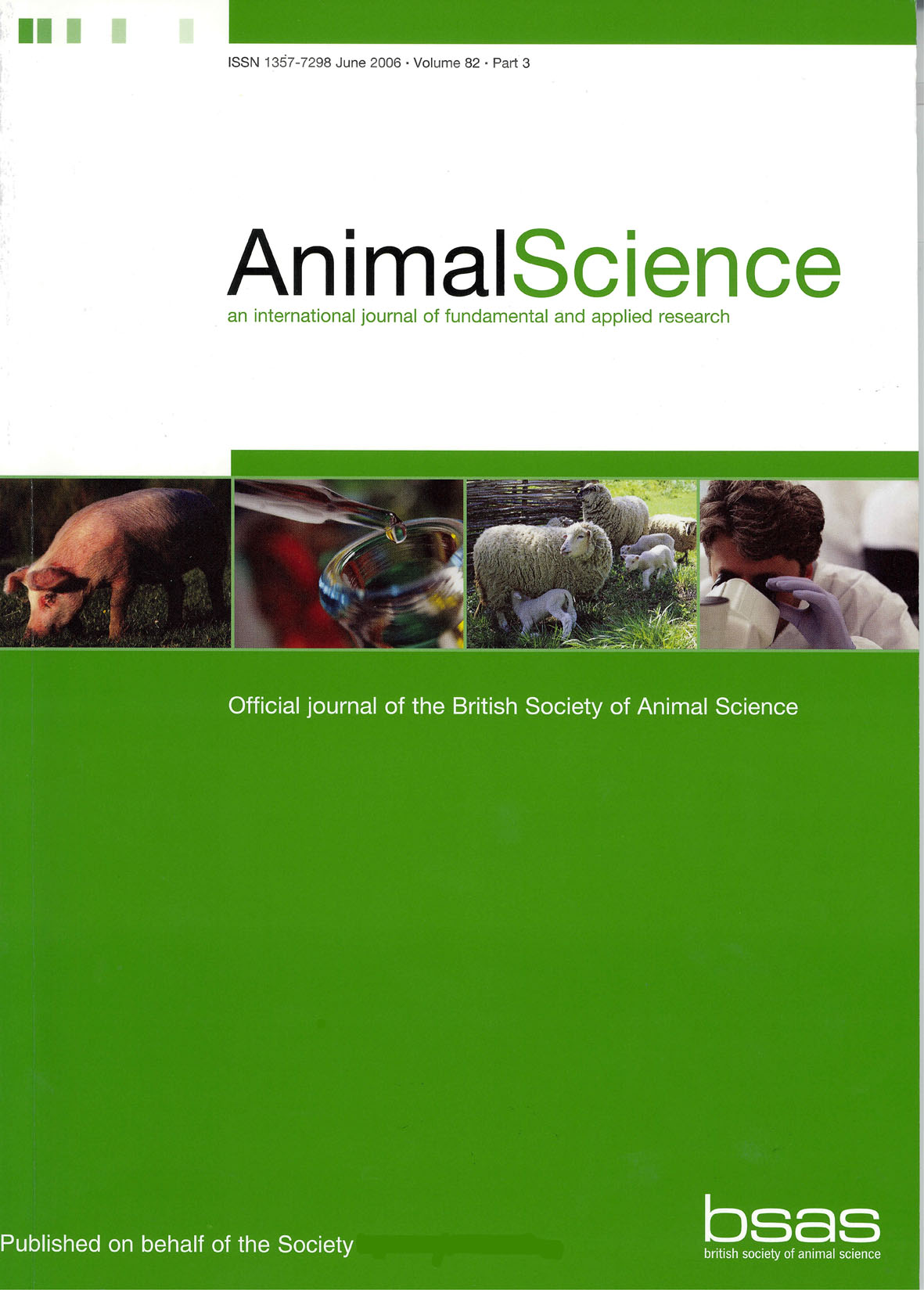Article contents
The utilization of dried forage crops by growing ruminants
Published online by Cambridge University Press: 02 September 2010
Summary
Mixtures (1: 1) of whole-crop dried wheat or barley, with peas or beans as a nitrogen supplement, were fed ad libitum to four groups of 16 6-mo-old male castrate sheep for a period of 42 days in 1971. The mean dry-matter consumptions (kg/day) and live-weight gains (g/day) were: wheat+peas 1·69, 264; wheat+beans 2·05, 288; barley+peas 1·80, 282; and barley+beans 1·81, 229. This experiment was repeated in 1972. The differences between treatments were non-significant.
Dried pelleted whole-crop maize was fed ad libitum to British Friesian steers for 90 days, in conjunction with molasses and one of three protein sources, soya bean meal, urea or whole crop beans. The dry-matter intakes (kg/day) and live-weight gains (kg) were: maize+soya 9·68, 1·26; maize+urea 9·38, 10·4; and maize+beans 9·72, 1·15.
Dried maize in conjunction with urea, whole crop beans and dried grass to supply crude protein levels between 9 and 11% was fed to 48 Hereford × British Friesian steers. The dry-matter intakes (kg/day) and live-weight gains (kg/day) were: whole crop maize, 8·35, 0·87; whole crop maize+urea, 9·55, 1·0; whole crop maize+whole crop beans, 7·44, 0·70; whole crop maize+dried grass, 8·94, 1·15; whole crop maize+rolled barley, 9·30, 1·23; and dried grass + rolled barley, 9·24, 1·21. Although there was no significant difference in live-weight gain between the treatments, two levels of performance were apparent.
- Type
- Research Article
- Information
- Copyright
- Copyright © British Society of Animal Science 1977
References
REFERENCES
- 1
- Cited by


